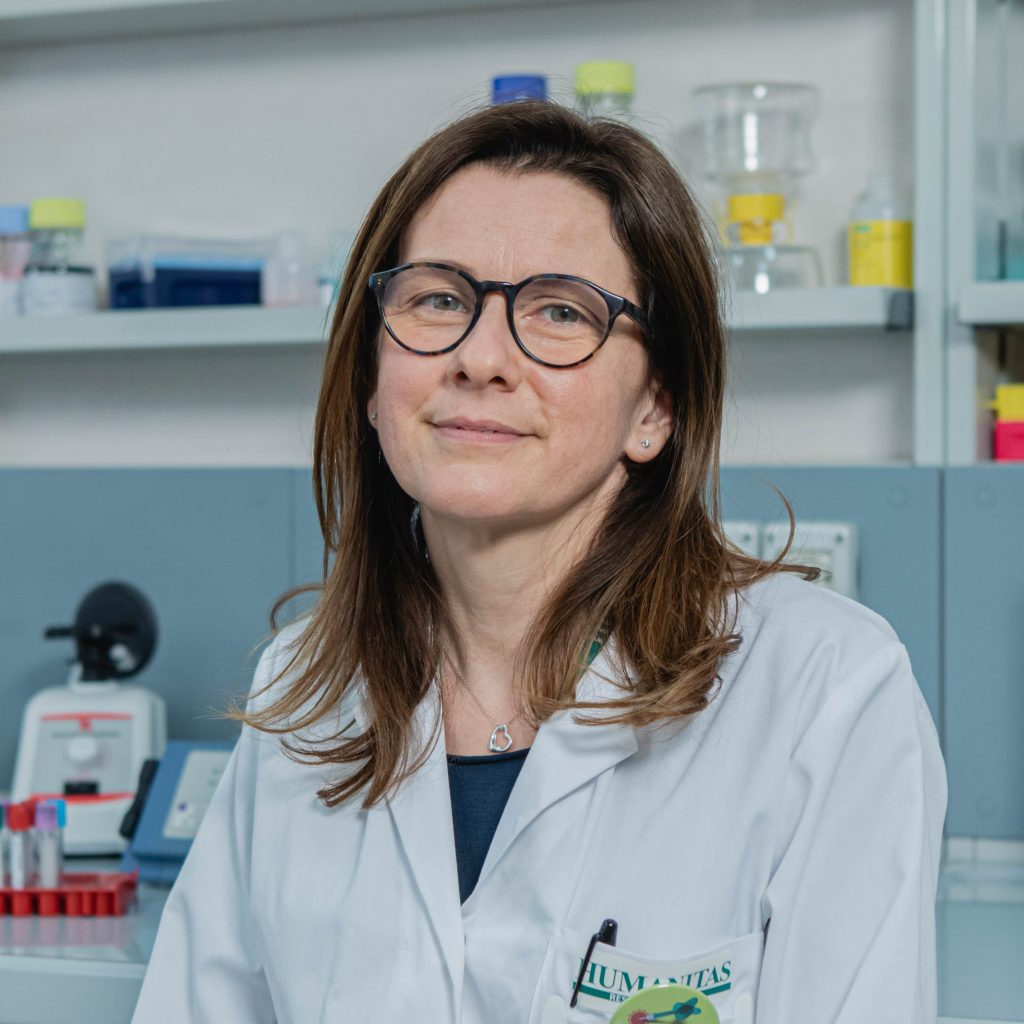Elisa Di Pasquale is junior group leader at Humanitas Research Hospital, there she leads the Cardiovascular Stem Cell Biology Lab, and Senior Researcher at the Institute of Genetic and Biomedical Research of the Italian National Research Council (CNR) in Milan.
Di Pasquale graduated cum Laude on Medical Biotechnologies in 2002 at the University of Milan, where she also obtained a PhD in Biotechnologies applied to Medical Sciences in 2005. After a post-doctoral training at the Rockefeller University in New York, in the Laboratory of Molecular Vertebrate Embryology, she moved back to Italy and joined Prof. Condorelli lab at IRCCS Multimedica Institute in Milan. In 2011, she received a tenured position in the Italian National Research Council, at the Institute of Genetic and Biomedical Research in Milan. In 2012 she joined the Cardiovascular Research Area at Humanitas Research Hospital, where now she is a junior group leader.
She gained experience in stem cell biology and the molecular mechanisms of human genetic diseases. Within the last 10 years, her research activity was mainly centered on induced pluripotent stem cells (iPSCs) technology for modelling both acquired and inherited cardiac diseases and for studying human heart development in vitro. She developed iPSC-based models of inherited arrhythmias and primary cardiomyopathies that served as platforms to investigate the cellular and molecular events leading to the diseases and to test the efficacy of new therapeutic treatments. In the last few years she dedicated her efforts to the understanding of the role of LMNA mutations in the onset and progression of dilated cardiomyopathy. A second research line relates to the mechanisms of cardiac differentiation and exploitation of bio-engineering approaches for the development of cardiac organoids/microtissues and for new therapeutic tools.
She received competitive grants from national and international agencies: Italian Ministry of Education University and Research, the Italian Ministry of Health, Telethon and Cariplo Foundations and the European Commission (among them, the PHOENIX project).
